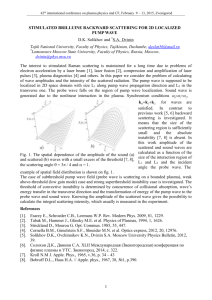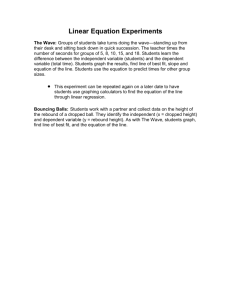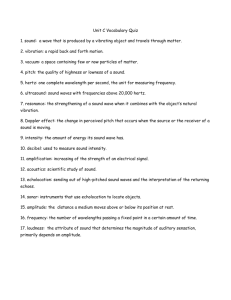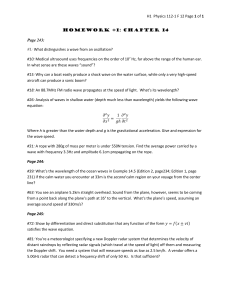On the theory of stimulated Raman scattering of electromagnetic
advertisement
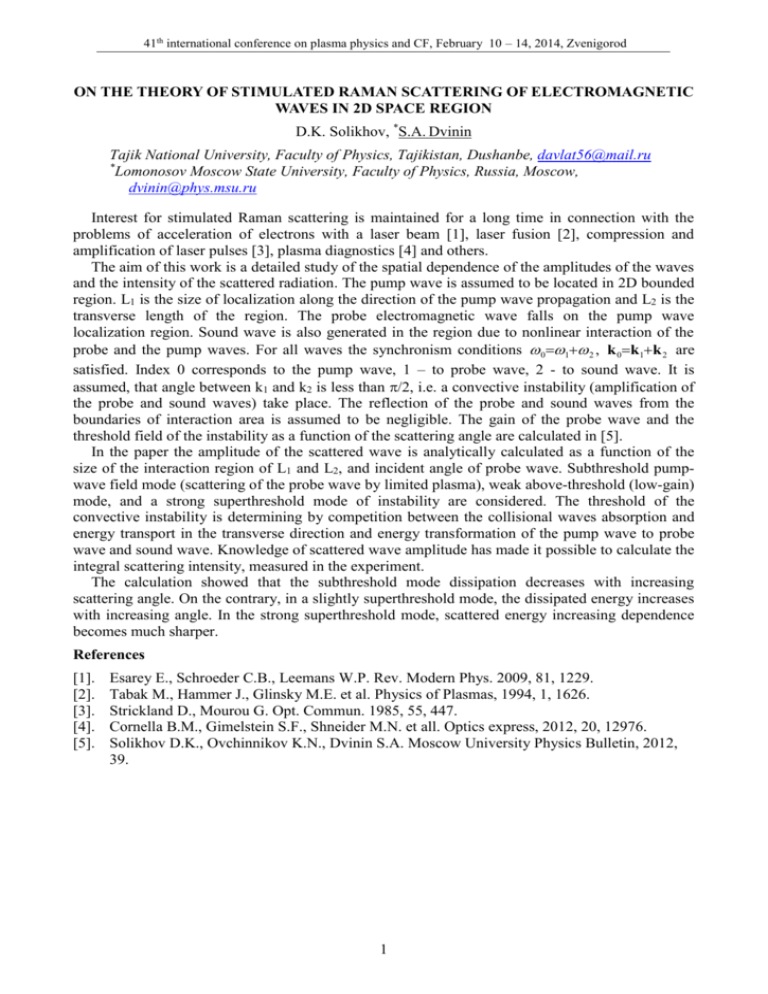
41th international conference on plasma physics and CF, February 10 – 14, 2014, Zvenigorod ON THE THEORY OF STIMULATED RAMAN SCATTERING OF ELECTROMAGNETIC WAVES IN 2D SPACE REGION D.K. Solikhov, *S.A. Dvinin Tajik National University, Faculty of Physics, Tajikistan, Dushanbe, davlat56@mail.ru * Lomonosov Moscow State University, Faculty of Physics, Russia, Moscow, dvinin@phys.msu.ru Interest for stimulated Raman scattering is maintained for a long time in connection with the problems of acceleration of electrons with a laser beam [1], laser fusion [2], compression and amplification of laser pulses [3], plasma diagnostics [4] and others. The aim of this work is a detailed study of the spatial dependence of the amplitudes of the waves and the intensity of the scattered radiation. The pump wave is assumed to be located in 2D bounded region. L1 is the size of localization along the direction of the pump wave propagation and L2 is the transverse length of the region. The probe electromagnetic wave falls on the pump wave localization region. Sound wave is also generated in the region due to nonlinear interaction of the probe and the pump waves. For all waves the synchronism conditions 01 2 , k 0k1k 2 are satisfied. Index 0 corresponds to the pump wave, 1 – to probe wave, 2 - to sound wave. It is assumed, that angle between k1 and k2 is less than /2, i.e. a convective instability (amplification of the probe and sound waves) take place. The reflection of the probe and sound waves from the boundaries of interaction area is assumed to be negligible. The gain of the probe wave and the threshold field of the instability as a function of the scattering angle are calculated in [5]. In the paper the amplitude of the scattered wave is analytically calculated as a function of the size of the interaction region of L1 and L2, and incident angle of probe wave. Subthreshold pumpwave field mode (scattering of the probe wave by limited plasma), weak above-threshold (low-gain) mode, and a strong superthreshold mode of instability are considered. The threshold of the convective instability is determining by competition between the collisional waves absorption and energy transport in the transverse direction and energy transformation of the pump wave to probe wave and sound wave. Knowledge of scattered wave amplitude has made it possible to calculate the integral scattering intensity, measured in the experiment. The calculation showed that the subthreshold mode dissipation decreases with increasing scattering angle. On the contrary, in a slightly superthreshold mode, the dissipated energy increases with increasing angle. In the strong superthreshold mode, scattered energy increasing dependence becomes much sharper. References [1]. [2]. [3]. [4]. [5]. Esarey E., Schroeder C.B., Leemans W.P. Rev. Modern Phys. 2009, 81, 1229. Tabak M., Hammer J., Glinsky M.E. et al. Physics of Plasmas, 1994, 1, 1626. Strickland D., Mourou G. Opt. Commun. 1985, 55, 447. Cornella B.M., Gimelstein S.F., Shneider M.N. et all. Optics express, 2012, 20, 12976. Solikhov D.K., Ovchinnikov K.N., Dvinin S.A. Moscow University Physics Bulletin, 2012, 39. 1


